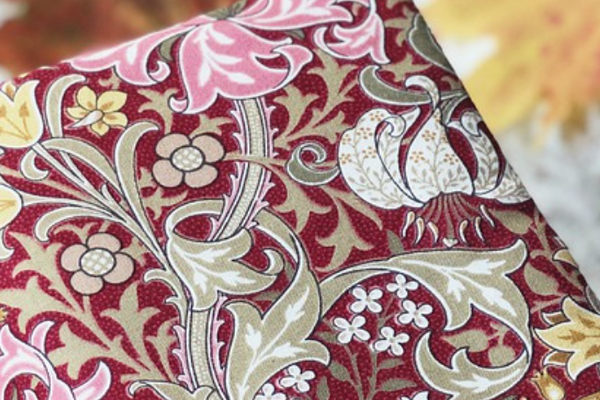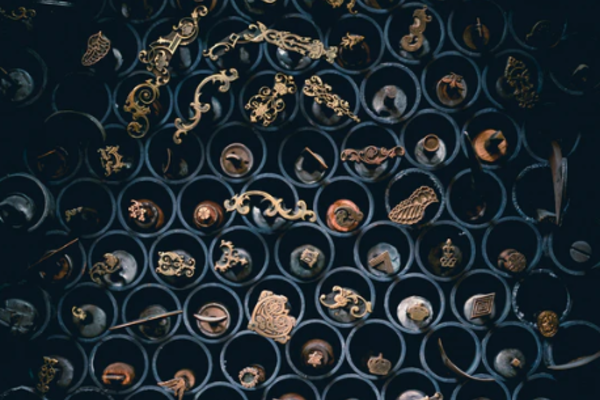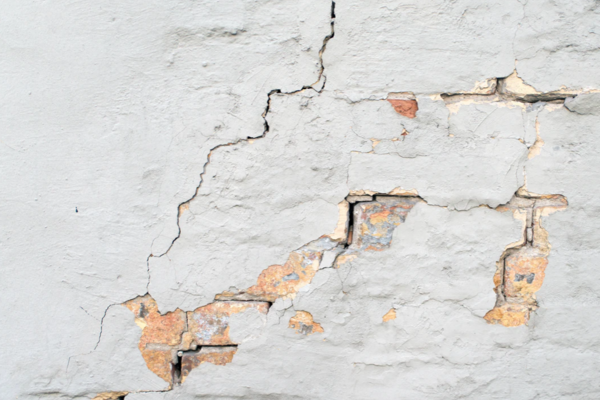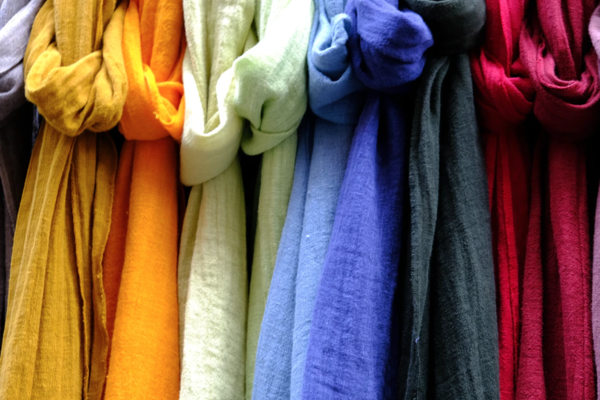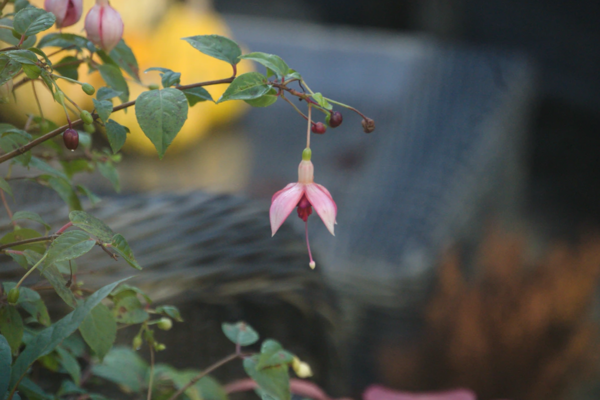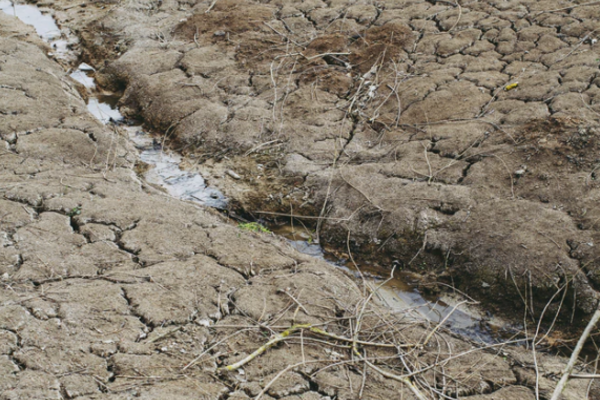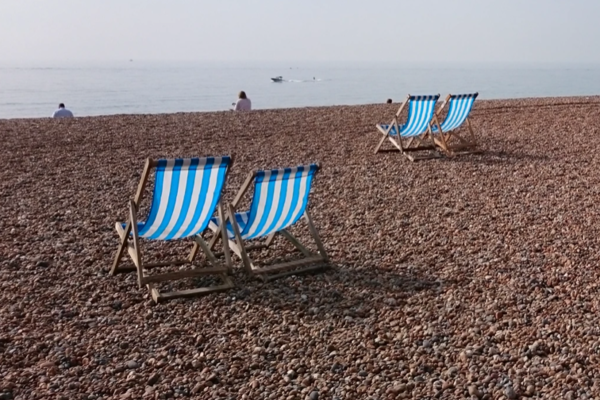We are more alike than we think
I hope that by revealing our similarities, and sharing people’s personal experiences over the past decade, contributors can be reassured of the power of their personal testimony in uniting a society and exposing previously silenced voices.
On 12th May 2010, The Mass Observation Archive re-launched its 12th May diary project, originally initiated for George VI’s coronation on 12th May 1937. Since 2010, it has made an annual call for diaries recording people’s lives across the UK on that day. The diaries, written between 2010 and 2019, were written by individuals of different ages, genders and professions - including carers, prisoners, schoolchildren, teachers, NHS staff, engineers, the self-employed, retirees and the unemployed. They provide a unique insight into their daily experiences, emotions, triumphs and struggles.
This blog post examines the commonalities evident in the contributors’ accounts of their daily lives over the past decade, showing that despite our differences, people often place emphasis on the same key themes. These themes include, but are not limited to: race and immigration; age, ageing and growing up; female experiences; issues with personal identity; weight loss and dieting; mental health; bereavement; health, illness and disability; financial concerns and unemployment; materialism and overconsumption; politics; social media, communication and technology; and gardening.
Race and Immigration:
At the forefront of several diary entries over the past decade were concerns surrounding race and immigration, particularly the rise in racial discrimination and anti-immigrant rhetoric after the 2016 Brexit referendum. In 2010, a 36-year-old Italian immigrant wrote about society’s preoccupation with ‘others’ and the silencing of voices and stories of immigrant communities in Britain: because of this marginalisation, she wrote that ‘I’m going to apply for a British passport so next time I’ll be allowed to vote in the general elections […] I will be able to participate fully in British political life, this is the time to speak up and out about our differences, our identities and contribution to life here in Britain’. Her decision to contribute a diary entry to Mass Observation was ‘the beginning of a personal change in attitude and realising my voice will not be forgotten on this day’. This ‘othering’ of immigrants is observed by a woman in 2014, who felt that the coalition government ‘isn’t helping calm the fires of distrust, the blame game about immigrants, or really change the views of more extreme parties’ such as UKIP, the BNP and EDL. Moreover, in 2018, a contributor wrote that ‘“anti-foreigner rhetoric” had become “normalised” in the UK since the EU referendum’ and this realisation had made her consider the experiences of the multicultural society surrounding her.
Age, Ageing and Growing Up:
The ageing process can be a time of contemplation and uncertainty, and this is expressed in some contributors’ writings: a 62-year-old woman wrote about her struggles with her changing appearance, before stating ‘Old age – no place for cissies’. For some, ageing is an appreciated process, with an 80-year-old woman writing that ‘it is always a privilege to wake, be fit and able at an advanced age to face a new day looking forward to what may be’. For others, thinking about ageing is a way of acknowledging the passing of time, and is sometimes nostalgic, with a 70-year-old attending a school reunion writing that she ‘thought about how many years had passed since we last met, of how much had happened and how the world had changed, and wondered where all that time had gone’, before acknowledging that age had only made her friends ‘older and wiser, more sociable than we were in school’.
For contributors facing milestones such as leaving school or entering the workplace for the first time, the process of ‘growing up’ appeared daunting and uncertain. A 14-year-old girl wrote of her inner conflict about ‘growing up’, writing ‘I want to get out of this classroom, this school, and yet I don’t want to grow up, I don’t want to become a boring adult with an office job in a mundane town, with a mortgage to pay and forms to fill out’. For young adults approaching post-education life, many face this liminality with apprehension; a 21-year-old leaving university in 2015 stating that ‘I think it is an odd time for us in many ways. For the first time in our lives we are finishing one stage without knowing what we are going onto next […] I’m caught between being happy that I have almost finished my degree and […] nervous that I now have to start my adult life. Like all my friends, I worry about whether I will be able to find a job and earn enough money to ever buy a flat of my own’.
Female Experiences:
On 12th May 2010, a 64-year-old woman wrote of her diary that ‘today I made history’; writing of her role as a mother and breadwinner did indeed make history as her diary entry has joined the Archive’s collection of everyday voices and experiences for future researchers to access. A decade later, women across the world continue to make history by contributing their diaries, detailing their everyday lives; a 42-year-old woman noting in 2013 that as Mass Observation helps ‘record women’s lives […] often left out of official histories’ her diary entry contribution was a ‘little feminist act’. Over the past decade, key themes have emerged from female-centric narratives, showing female experiences as mothers, housewives, carers and breadwinners, alongside the problematic nature of gendered ‘roles’ and expectations.
A woman caring for her disabled son wrote that she was ‘always doing ten things at once with no break from one thing to the next’; this sentiment was shared by many women in their diary entries, particularly working women who detailed their ability to multi-task to fulfil several societal ‘roles’. In 2017, a mother described her day at work, noting that she had to express breast milk at work, as ‘Being a working mum is full of moments like this. I am suddenly going from interview to policy writing to sitting at my desk topless measuring my life in ounces pumped’. In 2016, a woman wrote that she had to job-share so that she could have a ‘senior level, high profile role in the civil service but also to be able to pick up my son from school’.
These diary entries provide insight into societal perceptions of women and their ‘roles’ in the twenty-first century. In 2010, a woman was outraged to see that newspapers were full of David Cameron and his pregnant wife during the general election, with her questioning ‘why when we are in the twenty-first century has the women’s role in this election been reduced to that of a wife and mother’. This social insistence that women are first-and-foremost mothers and homemakers, can be seen with a woman upturning this gender norm; people often remarking on her family as she is the breadwinner whilst her husband is a stay-at-home father. A woman writing in 2012 noted that these gender norms meant she had been ‘lost in motherhood and being someone’s ‘trophy’ wife’.
Issues surrounding motherhood and childlessness were another prominent theme for women throughout the decade. one woman ‘checked over how I was feeling about my childlessness’, whilst another woman detailed her struggles with adoption and failed IVF, and her pain at seeing other people’s fertility success: noting that ‘it is distressing and compounds the grief of infertility’.
Finally, these diaries exposed women’s feelings of vulnerability, with one woman noting that she walked quickly to her car as ‘I feel a bit vulnerable in car parks after a man exposed himself to me in another Chesterfield car park last summer’.
Issues with Personal Identity:
Over the past decade, contributors have written about their struggle to self-label or understand their identity. In 2013, a 39-year-old woman wrote about the influence stereotypes had on her understanding of her appearance in relation to aspects of her identity. She writes about the length of her hair, stating ‘I struggled with my image when I first came out as lesbian a couple of years ago, but now I embrace my femininity. Only recently has it become more common for lesbians to not conform to the stereotypes, but I still have a tomboy way of dressing’. For an 18-year-old male, his uncertainty surrounding his identity, and his desire to reject stereotypes, has resulted in mental health issues. He writes ‘I like to dress in a skinhead look. I like to think the reason is because I’m rejecting mainstream conformity and dressing in a flamboyant subcultural style will show people that I am acting individually’, but that to gain self-assurance he has ‘developed the bad habit of drinking small quantities of alcohol before college […] maybe to make me more confident, maybe to make me happier’.
Weight Loss and Dieting:
In 2014, issues surrounding body confidence, weight loss and dieting began to emerge in dairy entries, with a 62-year-old woman noting that she took a ‘slimming tablet (herbal)’ as she hates ‘being fat’. By 2015, people were increasingly calorie counting, desiring more control over their bodies and health; a 67-year-old woman wrote that she ‘updated my weight chart (an Excel spreadsheet) […] I weigh myself every day to try to maintain some control on my weight’. Similarly, a 50-year-old male ensured he was ‘counting the calories to make sure I didn’t exceed 1800 kcals a day’ whilst doing regular exercise. For some, weight loss and diet is a response to mental health issues, with a 32-year-old woman noting that her weight is ‘often linked to my mental health, which due to the stress of life changes, has been pretty bad recently and I have been slipping back into a period of depression’, making weight loss challenging.
Mental Health:
Between 2010-2019, many contributors have revealed their battles with mental health issues such as depression and anxiety. One contributor pondered the idea of silent suffering, stating ‘It is very hard to talk about pain; I wonder how many of us live silently covering it all up, because weakness and fragility are ‘bad’ in this fast world’. Despite this concern, the anonymity of these diaries has resulted in people expressing their pain and fragility, with one man writing that ‘I could have cried, I felt so frustrated and depressed, but it would have taken too much energy and prolonged the time before I lost consciousness in sleep.’ For a 21-year-old student, crying was a cleansing process and so she ‘lay in bed and wept hysterically, which was quite cathartic. Cried for a long of things at once’. Some contributors also describe their ways of coping with their mental health. In 2015, a 44-year-old male wrote ‘I’ve been taking the Olanzapine tablets for about a month now, and they have really done wonders in lifting my mood. Hard to believe that just a couple of months ago I tried to take my own life’. Some contributors desired a non-medical approach: one woman writing ‘I am aware that recently I have been struggling with depression which is an outcome of work-related stress but I am attempting to combat it via food and supplements rather than going to the doctor’. Finally, many contributors suffering with mental health issues wrote of the need to talk to someone about their struggles, and the difficulties of this due to underfunding and stigma; a 23-year-old woman writing that ‘I had depression for three years before I finally gave up on asking the doctor for help and have gone private […] At the counsellors I tend to just let my stream of consciousness take me wherever, I usually don’t realise how much some things upset me until I’ve said them out aloud’. For some, writing these diaries offer a similarly cathartic outlet.
Bereavement:
Grief and loss are prominent themes in diary entries throughout the decade, whether this be the expression of emotions or showing how they were coping with bereavement. In 2011, a 53-year-old woman revealed the complexity of loss, detailing her pain at losing her husband, and how her clothes now felt wrong to wear, as ‘they represent the confidant business-like me that I was before Brian died’. For one contributor, clearing out her aunt’s belongings made her finally understand why her aunt was a hoarder: her belongings were ‘her past, present and future’ and upon realising this ‘for the first-time since my Aunt died, I felt truly sad’. Other contributors focused on their ways of coping with bereavement, with one individual noting that singing helped her ‘mend’ after the death of her partner: after feeling ‘totally broken [..] the process of being anonymous on stage with all those other people […] has really helped bring me back together’.
Health, Illness and Disability:
Illness and disability are at the forefront of many contributors’ experiences of daily life, with their ailments and illnesses varying from cancer to arthritis. Most contributors appear anxious about their health and its impact on their daily lives; this can be seen with a 64-year-old woman writing that ‘I am feeling a little apprehensive as I am not feeling very well. I suffer from periodic bouts of IBS and have been in pain for a week now. It usually goes away, but it’s very inconvenient, especially when I am away from home’. For a 65-year-old woman suffering from Marfan’s Syndrome, her fear and anxiety surrounding her health is palpable, with her noting that she ‘awoke early this morning to birdsong and worry. […] Is this the beginning of my deterioration? Will I see Christmas this year? No idea’. Whilst many fear death will be the conclusion of their ill health, one woman writing about her mother’s health conditions stated that her mother is ‘very candid about death and we often talk about her decline in health and what she’d like when she becomes more unwell […] it’s reassuring to me and my brother to know what she wants’.
Several diary entries provide insight into life with a disability, with one woman writing of her struggles of using public transport with her disable father. She noted that the train station ‘couldn’t accommodate a wheelchair’, resulting in them having to travel to another train station. For some contributors, they struggle with people’s lack of understanding of their disability; a 79-year-old woman suffering with Myalgic Encephalomyelitis (ME) wrote about a global ME demonstration ‘with empty shoes representing the missing’ members of society, explaining that invisible illnesses aren’t often understood by government or society. Economic difficulties surrounding disabilities was also explored by diarists, with an individual living with Fibromyalgia noting that social housing ‘impacts on my actual mobility as well as my social mobility’ and that being less isolated is desired as they are unable to work due to their disability.
Financial concerns and unemployment:
Financial struggles, unemployment and retirement concerns are at the core of many diary entries throughout the decade. The widespread concerns surrounding Britain’s financial situation can be seen in 2011 with a woman’s description of a Sainsbury’ advertising campaign ‘about being able to feed a family of four for a week on £50’. People’s shock at the country’s financial state can further be seen in 2014 with a 62-year-old man’s exclamation of ‘who would have believed even a decade ago that we would have food banks in Britain in 2014?’.
Many contributors note the impact that unemployment has on their mental health, with a 27-year-old male writing ‘Day 316 of being unemployed; after so long each day loses any kind of special character or notability except when there are good days, and those are rare enough, of thinking that luck is about to return, that misfortunate might at last be blown away’. Others write about the challenges of trying to stay positive and maintain a routine despite their unemployment: one woman writing ‘Since I became unemployed in January, I have been trying not to sleep in, trying very hard to keep to a regular pattern of getting up and getting on with things’ but ‘I could just as easily stay in bed, eat pizza and watch box sets all day. Sometimes the temptation to do that is very strong’. Finally, some contributors make comparisons between their unemployment and the unemployment and financial hardships of their elderly relatives, with a 27-year-old male writing that his grandmother frequently recalls the poverty and hardship of having unemployed parents in the 1930s and that ‘it pains her, I know it, to see the grinding down of someone’s hope through unemployment as it did to her father and her uncles all those years ago’.
Contributors also wrote about their worries about the financial situation retirement would put them in. In 2017, an individual wrote that when they retire ‘we will not be able to afford to stay in Central London’ and thus will have to spend time preparing the flat for sale and finding elsewhere to live. Another individual wrote of the struggles of rising retirement ages, stating ‘I wish I could afford to retire but I can’t, so I will just have to struggle on’.
Materialism and Overconsumption:
Issues concerning materialism and overconsumption in British society increasingly appeared in people’s diaries after 2012, with one woman writing that ‘we’re being sold at every minute of every day and as people are socially conditioned to conform, they buy what they’re told to buy’. In response to this psychological conditioning by companies, she wrote that people ‘succumb to buying things that no one wants, have no use, no value, no purpose and can only be used as landfill at the end of our lives’. Contributors’ concern with the rise of a ‘throw-away culture’, can be seen in 2019 with a 79-year-old woman’s fears for the climate and future generations, with her writing that ‘I so hope future generations reading this are not paying the price of this generation’s consumerism’.
Politics:
In 2010, contributors wrote of their concern for the new Conservative-Liberal Democrat coalition government, with a 53-year-old woman writing that it was ‘such a shame about Gordon Brown […] I can’t help wondering how the coalition will work, and whether we shall regret letting Mr Brown go’. Whilst most years saw writers discussing the political makeup of government, or upcoming elections, 2013 saw an increase in people writing about government policies and protests concerning these, with one woman noting that there had been ‘lots of protest marches about the demise of the NHS and the Bedroom Tax’. She detailed her thoughts on these protests and policies, arguing that ‘it’s the poor who are suffering deprivation whilst the rich get richer as they have shares in private companies now providing healthcare and social services which used to be provided by the state’. In response to the lack of media coverage of these protests and popular opinions, she posed the question ‘who controls the media?’. By 2019, much of the political commentary in diary entries concerned the issue of Brexit, with many contributors being anti-Brexit; one 65-year-old woman noting that Brexit is about a ‘small-minded Britain rules the wave’s mind-set […] it’s a selfish vote with no thought to the generations that follow us’. However, whilst most contributors opposed Brexit, some explained their reasons for being pro-Brexit; a 72-year-old male explaining that he was voting for the Brexit Party in the European elections because he was ‘really fed up with the politicians and how they have messed up the referendum result from 2016’.
Social Media, Communication and technology:
All diarists in the past decade made mention of social media and technology, with many praising it; on individual writing that the ‘use of electronic means of communication is perhaps the greatest change over the last 20 years’. For some, social media, such as Facebook, allows people to catch up with friends, with one woman writing ‘I love the immediacy of this kind of technology. Makes me feel like I’m with them even though they’re on the other side of the world some of them’. Comparing her experience of communication as a student to that of her son’s experience, a 48-year-old woman wrote in 2013 that ‘Facebook is my main means of keeping in touch with my son. Almost every day we’ll exchange a couple of messages. […] This is totally different from when I went to University, and made a weekly phone call home from a phone box’. For some, the proliferation of social media and advances in technology has been life-changing, with one woman observing that she had seen a man using his phone ‘except I think he was deaf and he was using some sort of screen sharing app to speak to the other person so they could see him signing at them and him them. I love how technology can change people’s lives for the better’. Similarly, a 64-year-old teacher wrote in 2014, that technology and social media offered flexibility for her students as ‘many of our students are at a distance on military bases. The online courses offer them flexibility […] Education, as you can see, has changed a great deal in the past decade or so’. However, whilst many find the omnipresence of technology and social media platforms in society to be positive, some wrote of their dislike of this increasingly digital world; a 72-year-old woman arguing that ‘it seems to me that possession of/interaction with gadgets is now more important than face to face conversations and interaction with real people’. This is further argued by a 64-year-old woman who wrote of her dislike of ‘artificial intelligence and the proliferation of self-service’ as it takes away human contact and interaction.
Gardening:
Gardening is described by many contributors as being a way to combat loneliness, connect with loved ones and reduce stress: one woman noting that spending time with her friends and family at their allotments is a ‘healthy and stress free and economical way to enjoy life’, and that ‘growing plants and food is a social occasion’. For those who are ill, enjoying their garden is extremely important: a contributor noting that gardening was her ‘passion before I got ill. This is the first time since I got ill that I have been well enough to potter around the garden’. For others, it provides them with a way to engage with their community and feel involved despite old age. This can be seen with a woman writing about an ‘elderly gentleman who has helped me with our large garden for most of the 20 years we’ve lived here [..] I did broad the subject of retirement last year (he’s 82) but he was very firm in saying that he wasn’t ready to give up yet’. Finally, gardening can be a nostalgic and healing process; one contributor stated that ‘we never used to like gardening. My mum and dad (his step-dad) loved it […] They’ve both died now and me and my brother have said how it makes us feel closer to them to do gardening and tend to seeds’.
We are more alike than we think…
This blog post reveals how people’s experiences, emotions, triumphs and struggles are often more similar than expected. The accounts of thousands of contributors between 2010 and 2019 show that as a society, we are more alike than we think…we are all impacted by ideas of our identity (whether this be race, gender, physical appearance, disability, age, sexuality or class), and are influenced by changes in our society (whether this be consumption habits, recession, political uncertainty, or the rise of technology and social media). I hope that by revealing our similarities, and sharing people’s personal experiences over the past decade, contributors can be reassured of the power of their personal testimony in uniting a society and exposing previously silenced voices.
If you would like to contribute to this community, and assist in recording the lives of ordinary people, please send your 12th May 2020 diary entry to moa@sussex.ac.uk.
By Ella Beales



